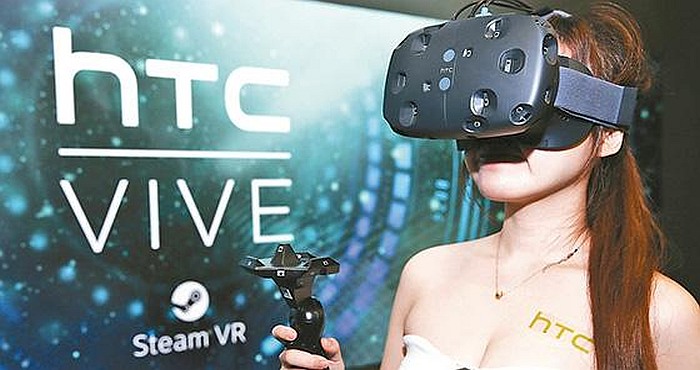
The HTC Corporation is doubling-down on its expectation that virtual authenticity is the future of entertainment, stating that it has vended its Shanghai-based tablet and smartphone manufacturing firm in a treaty worth £73.4 million.
While the Vive virtual reality part has been a sensible success for the corporation, its old-style smartphone and tablet corporate has been stressed for quite some time. In the financial statistics give in May last year, HTC cautioned of a 64% drop in returns and a £102M quarterly loss initiated by a lack of concern in its smartphone makes, returns which couldn’t be made up by the role sales of the high-priced Vive from the company. That the firm is looking to channel adoption of VR as its savior is no secret; HTC has put aside $100M for a VR speed up program as well it arrange the VR Venture Capital Alliance with a demanded total of $10B available to startups functioning in the virtual reality field.
At the present, HTC is separating itself still more from its unprofitable smartphone business. The firm has stated the sale of its Shanghai industrial firm to Xingbao Information Technology for £73.4M. Totaling an impressive 115km² and an extra 71m² of land, the company had formerly been used to make HTC’s handsets. According to its financial report to investors, it anticipates to make a £17.24M net return on the deal.
HTC has not yet specified how the sale will shake its future strategies in the mobile markets, but having freed itself of in-house production it’s possible the firm will be substantially scaling back its determinations in the market, having Vive as its main aim for the future.
The VR headsets are costly, particularly the $799 HTC Vive. It is definitely not something just anybody can afford instantly, but HTC and retailer associates are now giving users more options.
In China, for now, three 0% sponsoring schemes are on bid. One is for 3 months at $334.05, the other is for six months at $167.02, and the last is over a year at $83.51.
This may be a basic way of putting VR into public’s hands, although that cost still does not get them the costly, high-end PC wanted to essentially use a Vive. It is one of numerous varying commerce models the firm is trying for its set, the other comprising future subscriptions for contented services, and posing software to location-based colonnades. Just how fine any of these systems pile up to more old-style business models lasts to be seen.









